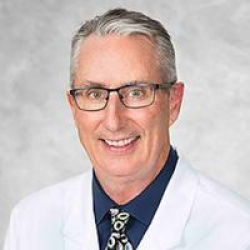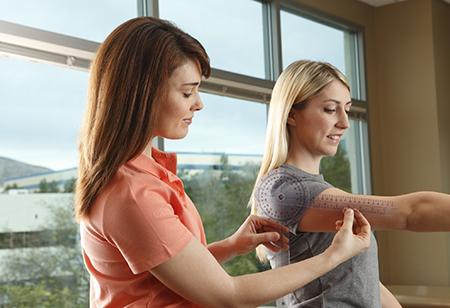If your shoulder is painful to move, feels weak or wakes you up at night, you may have a torn rotator cuff, which is responsible for stabilizing the ball and socket joint in your shoulder so you can lift and rotate your arm. If this sounds like you, you're not alone. Each year, almost two million Americans visit their doctor because of a problem with their rotator cuff, according to the American Academy of Orthopaedic Surgeons. Even more visit their doctor for generalized shoulder pain, which can stem from one of several structures around the shoulder.
Nonsurgical treatment options
You may be concerned you'll need surgery to treat your shoulder injury, but nonsurgical treatments relieve pain and improve the functionality of the shoulder for most patients.
Nonsurgical treatment may include one or more of the following: physical therapy, activity modification, over-the-counter pain medication and steroid injections.
"Regarding the therapy process, there is a group of exercises that were developed for baseball players that are very helpful for people with general shoulder problems," says Dr. Maddox. "It does not require an expensive gym or any equipment, just a very light dumbbell and some bands are all you need to do a reasonable shoulder program."
At HonorHealth, we’ll work with you to manage your symptoms, increase function and stabilize the shoulder joint to improve your quality of life.
Surgical treatment options
Depending on the type of injury, your age, your activity level and overall health, surgical intervention may be necessary at times.
Today's treatment options include minimally invasive surgical techniques, such as arthroscopic surgery, which is an advanced approach that uses a small camera for greater visualization of the shoulder joint to better understand the nature of the tear. This allows for smaller incisions that result in less pain after surgery.
You may need other shoulder repair surgeries, such as superior capsular reconstruction and reverse shoulder arthroplasty, if you've had prior surgeries that have not succeeded, if your rotator cuff cannot be repaired or if you have arthritis.
Recovery
After surgery, your arm may be immobilized in a sling, followed by physical therapy and home exercises to help you improve your range of motion and regain strength. After about three months, you should be able to return to your normal daily activities. You can expect some stiffness early on in your recovery, but ultimately your surgery will result in resolution of pain and improved shoulder function. These improvements to your overall shoulder health, pain and function can continue for up to a year after surgery.
"Whether you need surgical care or nonsurgical treatment options, you can expect our experts at HonorHealth to go beyond in resolving your shoulder pain and restoring functionality," says Dr. Maddox. "Our team will work with you at the center of your treatment journey to get you back to where you need to be."

